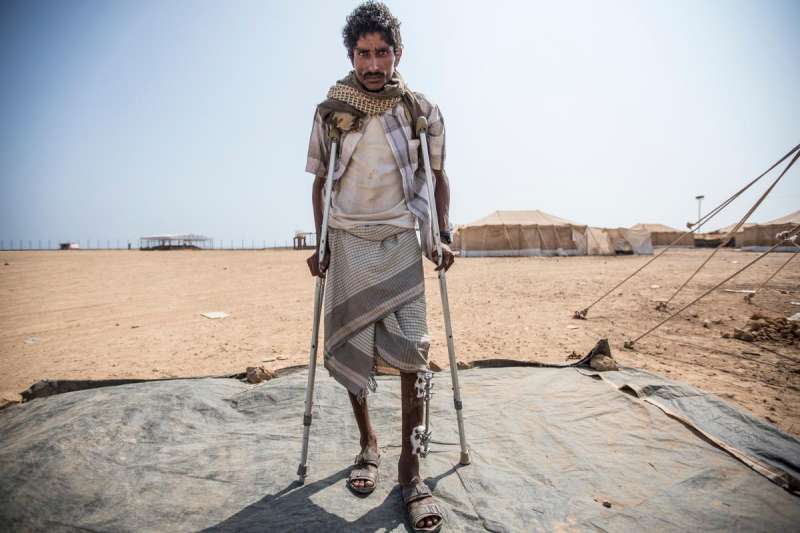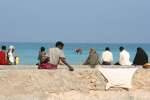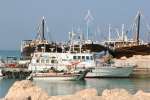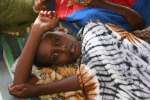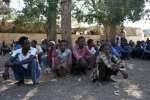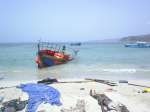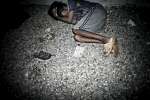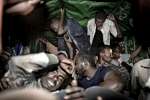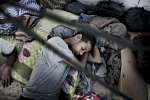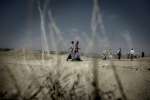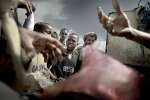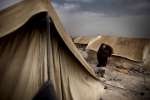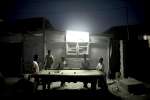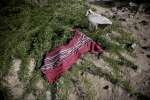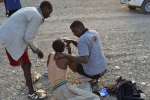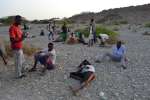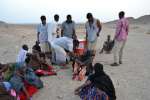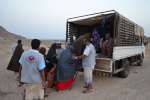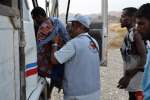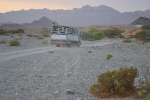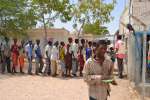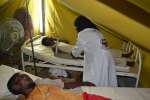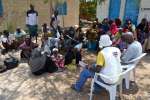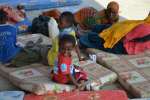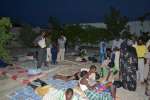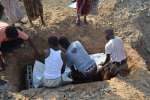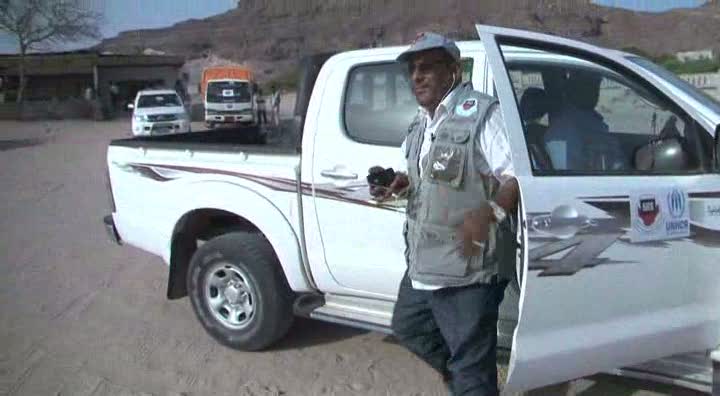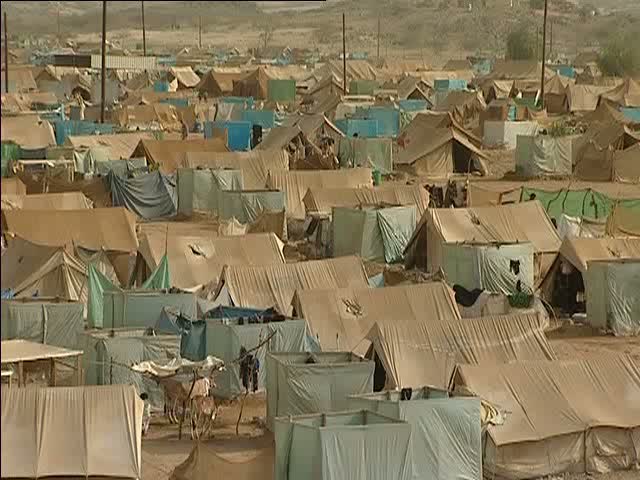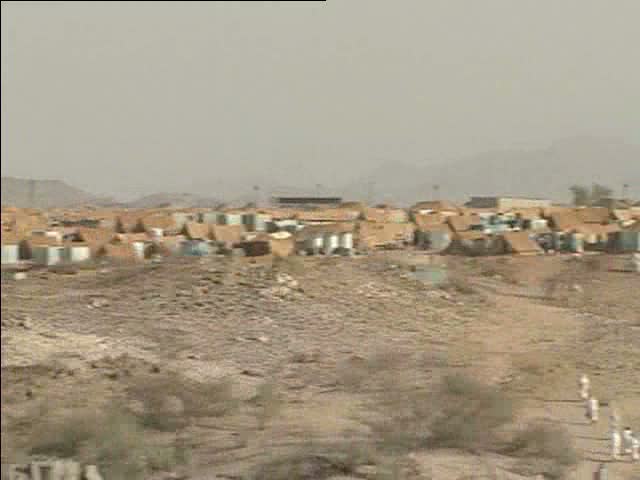- Text size
 |
|  |
|  |
| 
- Français
As fighting in Yemen intensifies, more flee to Djibouti
News Stories, 11 November 2015
OBOCK, Djibouti, Nov 11 (UNHCR) – Yemeni fisherman Seif Zeid Abdulah was riding home on his motorbike when an airstrike pounded his native Bab El Mandab region.
A sudden, concussive blast sent the 27-year-old flying. His left leg shattered by shrapnel, he found he was bleeding heavily from a wound that would require months of rehabilitation and treatment.
"I'd lived in fear that something like this could happen to a close family member, a friend or a neighbour. Then all of a sudden my leg is torn and I am crippled," he said.
As fighting intensifies in Yemen, over 120,000 refugees and migrants have fled since April 2015. More than 15,000 refugees like Zeid Abdullah have sought safety across the Gulf of Aden in Djibouti, a small country in the Horn of Africa.
As the civil war engulfed their homeland, many have lost their homes, others their livelihoods. Most feel unable to join their loved ones in other parts of the country because they fear for their safety.
Like millions of Yemenis, Zeid Abdullah was already enduring economic hardship before the civil war erupted in March. A decade of political instability, tribal tension and sectarian turmoil had also weakened public services, adding to their difficulties.
Fearing that medical facilities might become targets – as they already have in the conflict – Zeid Abdullah and other war-wounded civilians are increasingly reluctant to seek public health care within Yemen. Moreover, soaring costs of private clinics are forcing them to seek alternatives.
A slight figure, whose shattered leg is held together by pins, he decided to save his scarce funds and cross to Djibouti in late October, believing he would have a better chance of survival as a refugee.
"In Yemen, I came across many men, women and children whose health is deteriorating due to unhealed wounds," he said. "I am glad that some have already crossed. I hope the remaining will manage to cross as well", he added.
Supporting himself on crutches, his wounds exposed to the air, Zeid Abdullah registered as a refugee in the port town of Obock. He is looking forward to safety, protection and medical assistance in nearby Markazi camp from UNHCR and its partners.
According to Abdul Rahman Mnawar, the community services officer at Markazi camp, one of the most urgent issues is providing counselling and emotional support to the refugees, especially those who witnessed violence and killings first hand.
"We have many refugees who recently arrived to the camp, and we can see from their faces and whenever we talk to them that they are traumatized. They have been through a lot during their flight," Mnawar said.
Imad Ali, 28, also fled in late October. Crossing the 30-kilometre strait with four other Yemeni men on a seven-metre-long boat, the fisherman left his parents and other siblings back in the port city of Aden, where they first sought refuge.
"I stayed in my native region of Bab El Mandab because someone had to work and provide for the big family despite the high risks," he said. "But I realised soon after this war is worsening, and I don't have the means to bring everybody to Djibouti."
He opted to cross to Djibouti to join his fiancée and her family who had settled beforehand as refugees in Markazi camp.
"At least, my in-laws can become my second family" said Ali.
Though he has made it safely to Djibouti, he continues to worry about those he left behind in Yemen.
"There might be some temporary security and assistance for now, but it's not lasting peace. They cannot work and support themselves forever in Aden, nor could they return to Bab El Mandab where we come from", he said.
Since the end of September, more than 2,000 Yemenis have fled to Djibouti, bringing the number in Markazi camp to around 2,800. As violence at home rages on, seeking safety on the western shores of the Gulf of Aden is increasingly becoming the only resort for thousands of Yemenis.
"We are at about full capacity in Markazi camp," said Mnawar. "We already need to plan the extension of the camp to welcome additional refugees."
Oualid Khelifi in Obock, Djibouti
